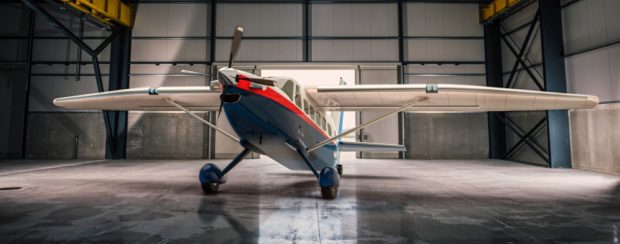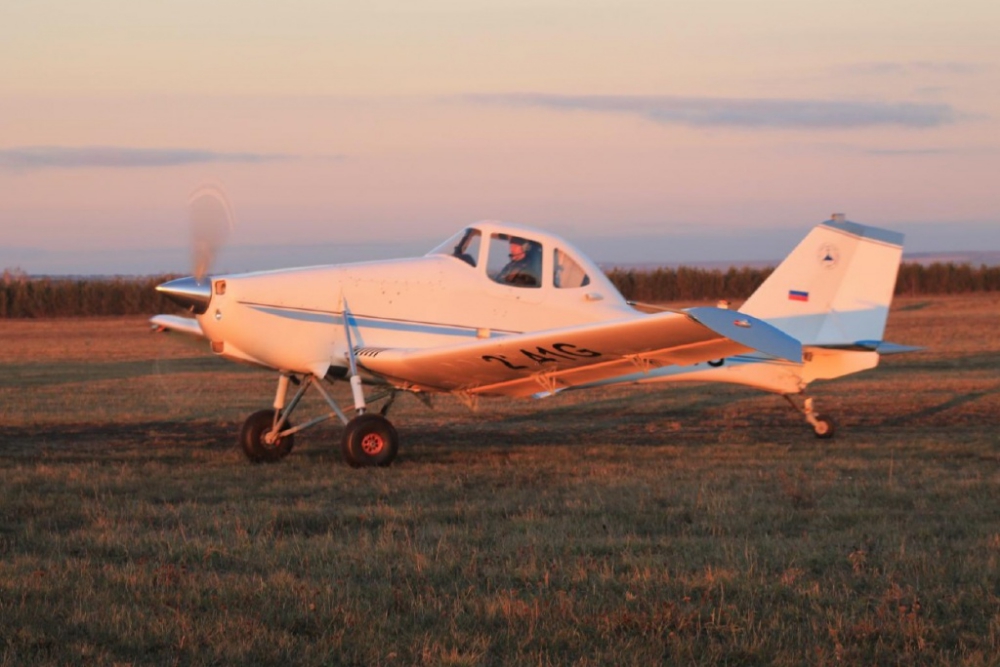The Russian company UWCA (Ural works of civil aviation) runs a program to create a family of unmanned/optional-piloted aerial based on existing manned fixed wing aircraft models. It is planned to use the new multipurpose aircraft LMS-901 Baikal and the agricultural aircraft T-500 as the base for creating its primary UAVs. UWCA engineers will equip these aircraft with communication and control systems.
The length of the Baikal aircraft is 12.18 m and its wingspan is 16.54 m. Maximum takeoff weight reaches 4800 kg. The plane is powered by General Electric H80-200 engine, the same used in L-410 aircraft (Czech aircraft are assembled at the UWCA production facility in Ekaterinburg). In the future it is planned that the Baikal will receive a Russian VK-800S 800 hp engine. The plane has a non-retractable landing gear and can be operated from unpaved runways. Baikal can be used for cargo missions. The payload weight reaches 1.5 tons.
T-500 is a new Russian lightweight agricultural airplane designed for aerial fertilization. The airplane is an all-composite. Maximum takeoff weight of the aircraft is approximately 1510 kg. The wingspan is 12.4 m and length is 7.7 m. T-500 uses 315 hp Lycoming O-540 engine. The aircraft is equipped with a non-retractable landing gear, allowing operation outside airfields. As a payload, the aircraft can carry a 500-liter chemical tank.
The creation of unmanned versions of the Baikal and T-500 aircraft is primarily due to economic reasons. The use of unmanned versions will allow significant reduction of financial expenses. As regards the cargo delivery it is expected to be many times cheaper in comparison with manned aircrafts used nowadays: the cost will be 0,11 rubles[1] per 1 kilogram per 1 kilometer on the route of 1,000 kilometers against 41 rubles per 1 kilogram per 1 kilometer for manned aircraft on the same route.
The T-500, was first shown at the MAKS-2017 air show. On September 6, 2018, a type certificate was obtained. LMS-901 Baikal was presented at MAKS-2021 for the first time. The test program will last for 1 year. Then, in 2022 should be held certification, and in 2023 it is planned to start serial production of Baikal. The dates for the unmanned versions of these two planes were not given. It can be assumed that the work on their creation will be carried out in parallel with the finalization of manned versions.
Top Photo: Baikal Engineering Ltd.
Centre Photo: The Ministry of Agriculture of Russia
[1] 1 GBP = 96 Rubles
Sources: «Bespilotnaya aviatsiya» mag., Armeyskiy Standard


